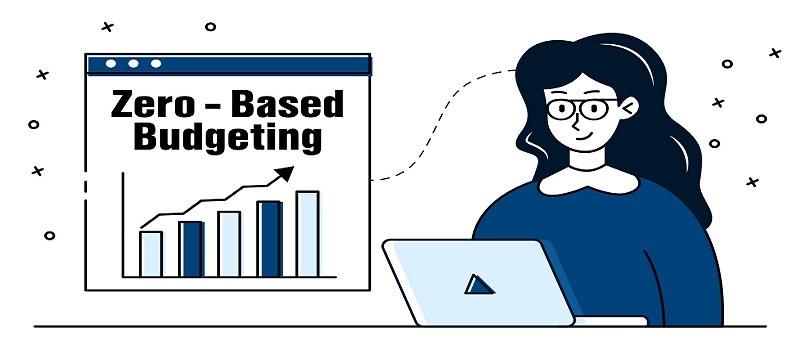
Along with traditional budgeting methods, new methods take shape from time to time. Keeping in mind the increasing financial challenges of businesses and individuals, the finance industry always invents better financial tools.
Zero-based budgeting is one such method through which you can understand the calculation of income and expenses more precisely. This budgeting method can be used on both small scale and large scale.
This means that a large organization can also use it, a startup can also use it, and an individual can find it dependable to attain their financial goals.
Whether it is a direct lender selling secured loans in Ireland or a salaried teacher, both can find it useful in many aspects.
In this blog, we learn everything about zero-based budgeting and why it is important in today's scenario.
Zero-based budgeting is a granular budgeting type in which it is necessary to demand justification for every individual expense. While budgeting for every new period, the calculation is started from zero.
For this budgeting, the expenses of the coming period are justified by comparing them with the expenses of the previous period. The aim is to spot and avoid unnecessary expenses to work on revenue sources.
For zero-based budgeting, all expenses are categorised. Then, they are compared with the previous budgeting period. Expenses that are unnecessary are deducted. The budgeting experts then mention the ways to avoid these unnecessary expenses.
Example of zero-based budgeting
A furniture manufacturing company finds a 10% increase in its raw material cost. Currently, it buys material from only one supplier. However, zero-based budgeting says that the company should not allow an increment in the cost of purchasing raw materials by 10%. Instead, the organisation will try to find new suppliers for raw materials. Thus, the goal of the organisation is to get the materials at the existing cost itself. Zero-based budgeting drives attention to the maximum use of existing financial resources. The ultimate focus is reducing the cost.
Everything in the world has its own pros and cons. Zero-based budgeting is not an exception. Let us know what are the advantages and disadvantages of this budgeting type.
|
Advantages |
Disadvantages |
|
Detailed budgeting that scrutinized every single expense which helps save money. |
It is time-consuming and resource-intensive, which makes it a complicated task. |
|
Makes the managers justify every expense. Inspires them to work on cost-effective methods to reduce the increased costs. |
Managers have high pressure to cut costs, sometimes unrealistically, which may affect productivity and performance. |
|
Flexible method that can be used by businesses as well as individuals. |
More focus is placed on short-term perspectives due to the importance of cost-cutting. May ignore long-term horizons like research and development. |
|
Drives attention towards the highest revenue-generating operations while working on cost-cutting. |
Need expert knowledge of budgeting for proper implementation. A mistake can cause great chaos. |
Be it zero-based budgeting or traditional budgeting, both have their own importance. Both are different from each other in some aspects. Let us know the difference between these two.
|
Zero-based budgeting |
Traditional budgeting |
|
It is a granular budgeting method that focuses on each and every expense. |
It takes an overall look of income and expenses. |
|
It does not allow incremental increases for a particular purpose. It inspires a change strategy to cut costs and manage the existing resources. |
It is flexible enough to allow incremental increases for a specific purpose according to the increase in expenses. But this may cause a spendthrift attitude. |
|
It demands justification of both the old and new expenses. |
It does not get much into the scrutiny of justification on expenses. |
|
It focuses on optimising costs as well as revenue. |
It only works to optimise revenue generating operations. |
This type of budgeting may sound complicated, but you can easily complete it by following five simple steps. These five steps are–
While working on zero-based budgeting, you have to follow some specific approaches. This decides the efficiency and perfection of the budget. Let us know what those approaches are.
After reading the information given above, you must now be clear about all the technicalities of zero-based budgeting. Just like every budgeting type, it is also inclined to use crisis management methods during financial chaos.
Whether it is about creating a bigger emergency fund or taking loans in Cork for an emergency, it supports a rational attitude.
This is a progressive and detailed type of budgeting, although it is time-consuming. However, for organisations and those who want to work on indirect visuals, cost-effective methods, and lifestyle, zero-based budgeting is the best option.